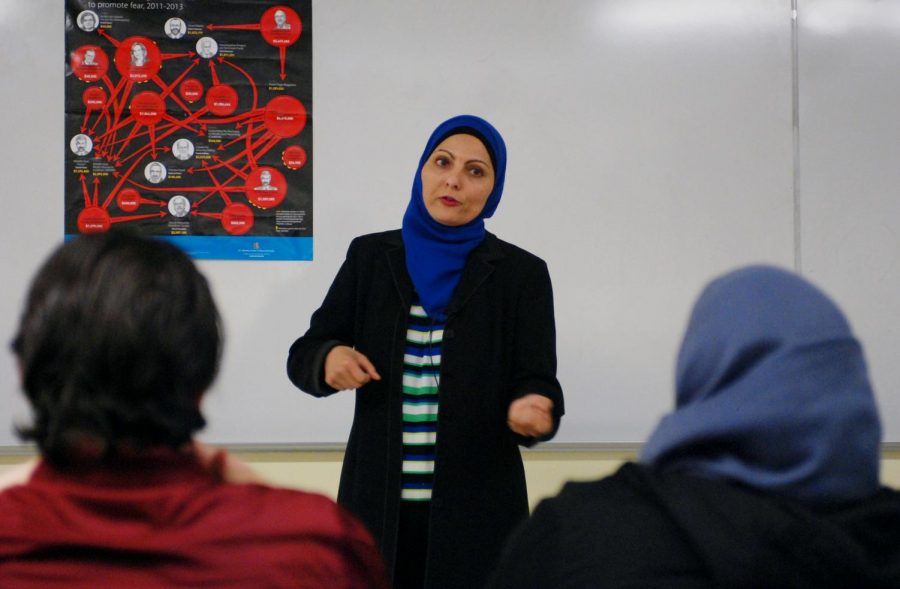‘Facts don’t change hearts’
Activist says personal connections, not data, break down barriers
ZACH RUBIO | The Daily Evergreen
Aneelah Afzali speaks about Islamophobia and media portrayal of Muslims on Friday in Todd Hall.
November 5, 2017
Islamophobic legislation and hate crimes have been on the rise in the U.S., a Harvard Law graduate and activist told students Friday.
Muslim Students Association hosted Aneelah Afzali, the executive director of the Muslim Association of Puget Sound and American Muslim Empowerment Network. She left her law career and has been educating Americans about Muslims and Islam for the past four years.
Afzali identifies as a Muslim woman and told students that both Muslims and allies can combat Islamophobia.
She said that many Americans learn about Islam from anti-Muslims, not Muslims, and may be misled through misinformation from media messages they receive.
“As bad as things are for American Muslims, I am still proud to be an American Muslim,” she said.
Afzali said she has been inspired by Islamic teachings throughout her life. She said her parents taught her and her siblings hard work, honesty, compassion, service, integrity and education, and explained that those are all Islamic values.
“American Muslims want to succeed in the traditional American way,” Afzali said.
Throughout her talk, Afzali stressed that Islamophobia cannot be pinned on one person. She explained that there are anti-Muslim people on both sides of the political spectrum. She said that how people talk about Muslims in the media plays a big role in fueling the hate.
“The Muslim world is very diverse and not at all the kind of monolith that it is often portrayed as,” Afzali said.
She also provided some facts and figures to give perspective to the growing issue of Islamophobia. States have introduced 120 anti-Islam bills since 2016 with 15 being enacted into law, according to the Southern Poverty Law Center. She also said the number of Muslim hate crimes increased by 91 percent in the first half of 2017 compared to last year, according to the Council on American-Islamic Relations.
Afzali explained that Muslims across the world condemn the ideology of the people who carry out attacks and have overwhelmingly been their biggest victims. She noted that Muslims are ISIS’ biggest target.
Afzali offered advice on how to combat Islamophobia and work to spread the truth about Muslims.
“We as Americans are all in this together and we’re stronger when we’re united,” Afzali said.
She explained that learning about Muslims, visiting local mosques and connecting with Muslim people are great ways for allies and those who are uninformed about Islam to educate themselves face-to-face.
“Facts don’t change hearts and minds,” Afzali said. “What does change hearts and minds are personal connections and personal stories.”









